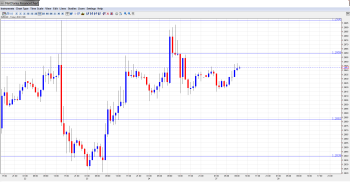CB Consumer Confidence in the US and Haruhiko Kuroda speech in Japan are the main events lined up. Let’s see what awaits us today.
In the US, Case-Shiller (CS) Consumer Confidence, Survey to rate the current and future financial conditions such as labor availability and overall economic situation, rise up to 70.7 points is likely now from 68.1 points on the last time.
Later in the US, Standard & Poor’s (S&P) Case-Shiller (CS) Composite-20 House Price Index (HPI), value the selling price of single-family homes that are in 20 metropolitan areas, rise up to 10.2% is due now from 9.3% on April.
Finally in the US, Richmond Manufacturing Index, 2 points are expected this month from -6 points on the last report.
In Canada, Corporate Profits, 1.4% is calculated now similar to the last quarter.
In Europe, German Import Prices, -0.2% is likely now from -0.1% on the last month.
In Great Britain, Paul Tucker, Bank of England (BOE) Deputy Governor is due to speak in London.
In Switzerland, Employment Level, quarterly report to value the employed people, 4.11M is expected now from 4.12M on the previous time.
Later in Switzerland, UBS Consumption Indicator is likely to remain with no change from the last time with 1.25 points.
In Australia, Construction Work Done, calculated all the construction projects complete, 1.1% is due now from -0.1% on April.
Later in Australia, Housing Industry Association (HIA) New Home Sales, Change in the number of newly constructed homes sold, 4.2% is due with no change from the last month.
Also in Australia, Melbourne Institute (MI) Leading Index, 0.6% is likely now.
In Japan, Haruhiko Kuroda, Bank of Japan (BOJ) Governor is due to deliver a speech in Tokyo.
Later in Japan, Retail Sales, shows the total value of sales at the retail level, -0.4% is forecasted now from -0.3% on the last report.
 continues where it ended last week, trading in the mid-1.29 range. The week ended on a high note, as both US and German numbers beat expectations. GfK German Consumer Climate posted a multi-year high, and German Ifo Business Climate easily beat the estimate. In the US , Core Durable Goods Orders bounced back and recorded a strong gain. Monday will be marked by thin volume, as the US markets are closed for a holiday, and there are no releases out of the Eurozone.
continues where it ended last week, trading in the mid-1.29 range. The week ended on a high note, as both US and German numbers beat expectations. GfK German Consumer Climate posted a multi-year high, and German Ifo Business Climate easily beat the estimate. In the US , Core Durable Goods Orders bounced back and recorded a strong gain. Monday will be marked by thin volume, as the US markets are closed for a holiday, and there are no releases out of the Eurozone.





























